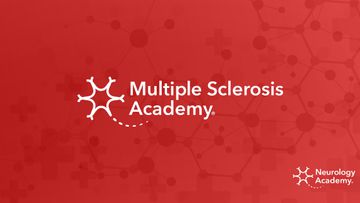Impact of the environment and lifestyle and MS risk and clinical course
Event reportsThis session, with presentations from a variety of professionals, examined the latest research in environmental and lifestyle risk factors related to MS. Specific topics discussed in relation to MS were:
Metabolic syndrome
Ruth Marrie highlighted how metabolic syndrome (MetS), is an important area to address with patients who have MS. MetS is a cluster of comorbidities occurring together leading to worsened cardiovascular health. It includes obesity, dyslipidemia, diabetes, and hypertension.
In people with MS, MetS is linked to:
- greater disability at diagnosis,
- increased relapse rate,
- increased disease progression,
- reduced health-related quality of life,
- impacts DMT success
Key references:
- Salter A, Kowalec K, Fitzgerald KC, Cutter G, Marrie RA, 'Comorbidity is associated with disease activity in MS: Findings from the CombiRx trial', Neurology Aug 2020, 95 (5) e446-e456; DOI: 10.1212/WNL.0000000000010024
- Tettey et al JNNP 2017, 88: 395-401: Overweight or obesity / dyslipidemia contribute to at least .5 points in worsening EDSS
- Briggs et al MSARD 2019, 30, 9-16: higher BMI equated to reduced timed 25 foot walk speeds and greater condition burden over time
- Mowry et al, Neurology 2018, 91 e2256 - reduced brain volume loss with increased obesity
- Huppke et al - found a higher relapse rates in obese adolescents with paediatric onset MS
Smoking
Anna Hedstrom proposed the theory that it is inflammation in the lungs that drives the increased risk of MS, when considering smoking. She highlighted that passive smoking, and exposure to organic solvents were also associated with an increased risk, and proposed that autoaggressive T-cells present in the lungs with the ability to migrate to the brain may be relevant in this link.
Some headlines included:
- Smoking is linked with a 50% increased risk of MS
- People with 2 genetic risk factors for MS had an additional 6-fold increased risk of MS if non-smokers - and a 13-fold risk if they smoked
- A high volume of studies find increased risk of disease progression including higher likelihood of developing SPMS and reaching EDSS 4 and EDSS 6
Key references:
- Hedström AK, Hössjer O, Katsoulis M, Kockum I, Olsson T, Alfredsson L,'Organic solvents and MS susceptibility: Interaction with MS risk HLA genes', Neurology Jul 2018, 91 (5) e455-e462; DOI: 10.1212/WNL.0000000000005906
- EIMS - ongoing environmental study in Sweden.
- GEMS - ongoing environmental study in Sweden. GEMS has recorded 80% of MS patients registered from the total MS population with the two studies giving a combined 9,000 cases and 12,000 controls.
Epstein-Barr virus
Kassandra Munger took time examining carefully the increased risk that contracting the Epstein-Barr Virus (EVB) or infectious mononucleosis (glandular fever) can have on individuals. Preliminary findings by Levin et al (2010) looked at a sample of 48 people; 20 of them contracted EVB and of them, 10 went on to develop MS. Of the other 18 who did not contract EVB, none developed MS.
Vitamin D
Kassandra also looked at the evidence for vitamin D as a lifestyle risk factor, finding that there was a 2-fold increased risk of MS when the person had insufficient to deficient levels of vitamin D. She also noted that children born to vitamin D deficient mothers, or who had vitamin D deficiency themselves at birth had a 1.5-2 fold increased risk of MS.
She noted the discussions of prevention trials in MS using vitamin D as well as suggesting that current attempts to find a vaccine for Epstein-Barr virus may reduce risk of MS in the general populace.
Key reference:
Levin L, Munger K, O'Reilly EJ, Falk KI, Ascherio A,; 'Primary infection with the Epstein‐Barr virus and risk of multiple sclerosis', Annals of Neurology, 25 May 2010 doi.org/10.1002/ana.21978
Air pollution
Amin Ziaei shared his research on the association between air pollution and paediatric MS noting that the level of risk increases with level of pollution in the air.
He highlighted that there are several ways in which the two correlate. Ozone exposure can:
- induce inflammation,
- impact the myelin sheath and
- modulate immune systems.
Key reference:
A. Ziaei, A. Lavery, C. Adams, T. Casper, S. Roalstad, M. Candee, J. Rose, B. Weinstock-Guttman, G. Aaen, J. Tillema, et al, 'Evidence for an interaction between ozone pollution and HLA-DRB1*15 alleles in pediatric multiple sclerosis', 2020.
Cardiovascular risk factors
Finally, Rafaello Bonnachi shared his findings on the impact of cardiovascular disease risk factors on brain lesions and brain atrophy in MS.
He reported that the presence of cardiovascular risk factors is associated with a significant decrease in grey and white brain matter in those with MS under the age of 50. The impact on brain mass was more significant in those with MS than the healthy controls who, with two cardiovascular risk factors showed a trend towards decreased grey matter volume. Those with MS, however, who had two cardiovascular risk factors, had a significant decrease in both gray and white matter volume.
Key reference:
- D. Mistri, A. Meani, A. Zanghì, M. Filippi, M. Rocca, 'Cardiovascular risk factors affect brain volume in young MS patients', 2020
Related articles
Encouraging excellence, developing leaders, inspiring change
MS Academy was established in 2016 and in that time has accomplished a huge amount with exciting feedback demonstrating delegates feel inspired and energised along their personal and service development journeys. The various different levels of specialist MS training we offer are dedicated to case-based learning and practical application of cutting edge research.
